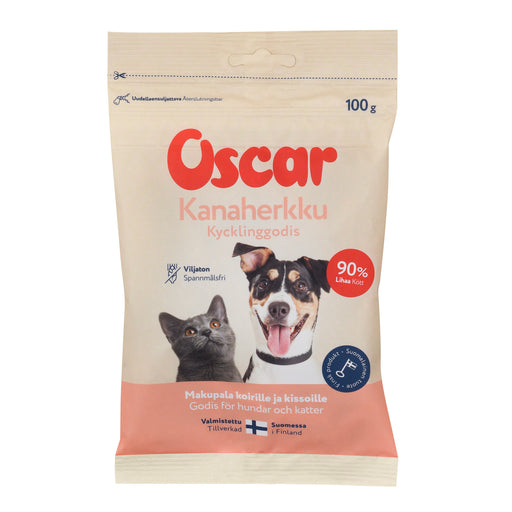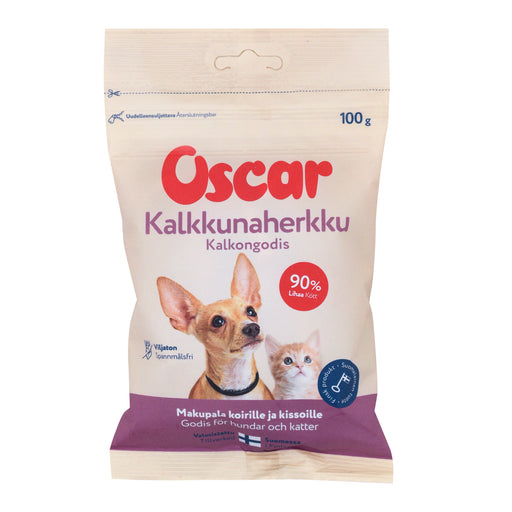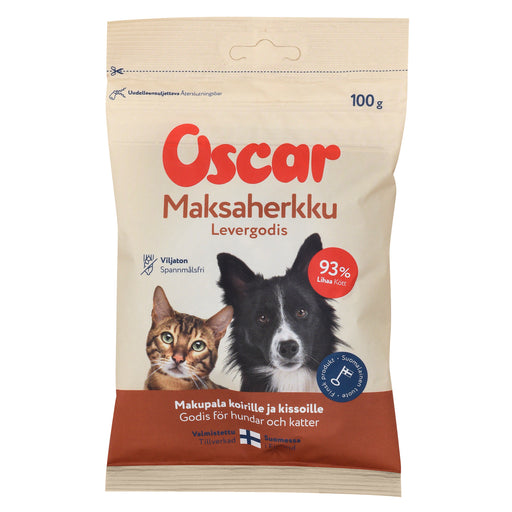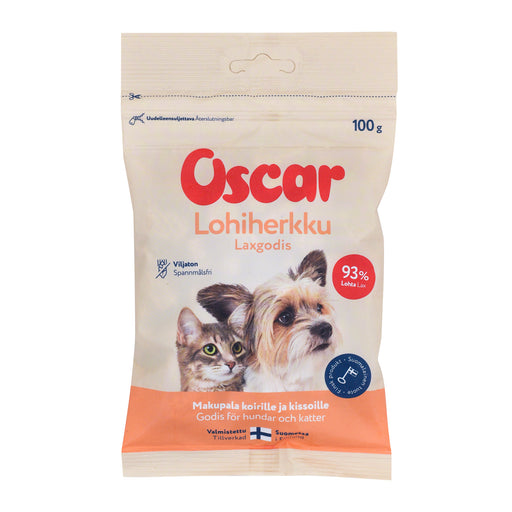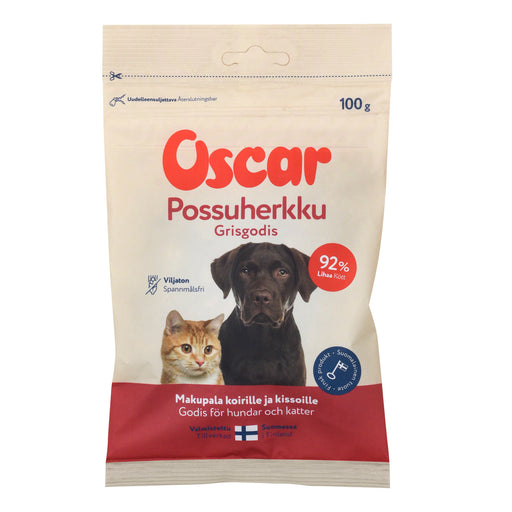As dogs age, their bodies naturally go through many physiological changes. How a dog ages is determined by its size, breed, genetics, and environment.
Smaller breeds may live very active lives well beyond 10 years of age before showing any signs of aging, whereas larger breeds may start to become visibly older by age 5. Many age-related changes are not obvious from the outside, but responsible owners should prepare for them when planning their aging pet’s diet. Older dogs have different dietary requirements and their diet must be adjusted according to their needs.
One natural change is a lower need for energy as the dog becomes less active. This is the time to consider the energy and fat content of the dog’s food, especially if they gain weight easily. Make sure to keep a sharp eye on any extras you give your dog, such as rewards and treats. Please note that while the amount of fat is important, dogs also need enough of the right fatty acids to keep their skin, coat, joints, and heart healthy and flexible, among other things. In particular, senior dogs should receive more omega-3 fatty acids (EPA and DHA).
Digestible food and intestinal support
Aging will also affect the dog’s digestion, slowing it and reducing the rate of absorption of vital nutrients. Their food should be easy to digest and contain only high-quality protein. A high protein content will help the dog maintain its muscles, which are important for supporting the dog’s joints. At this stage, the amount of carbohydrates should be reduced to the minimum, and grain products especially should be left out.
Due to slower digestion, a little help for the bowels will not go amiss in the form of probiotics and dietary fibre. The ability of older dogs to absorb the vitamins and minerals in foodstuffs is weaker, so you should consider adding supplements to their diet, at least as occasional treatments.
Dental care and entertainment
Age will also affect the dog’s teeth, so take good care of them as well. The food eaten by your dog has a considerable impact on its dental health and the prevention of health problems. Research has shown that chewing on raw bones significantly reduces the build-up of tartar. Toy bones such as rawhide chews can be used in addition to raw bones. Dogs love to chew on bones, and it helps to not only reduce tartar but also stress.
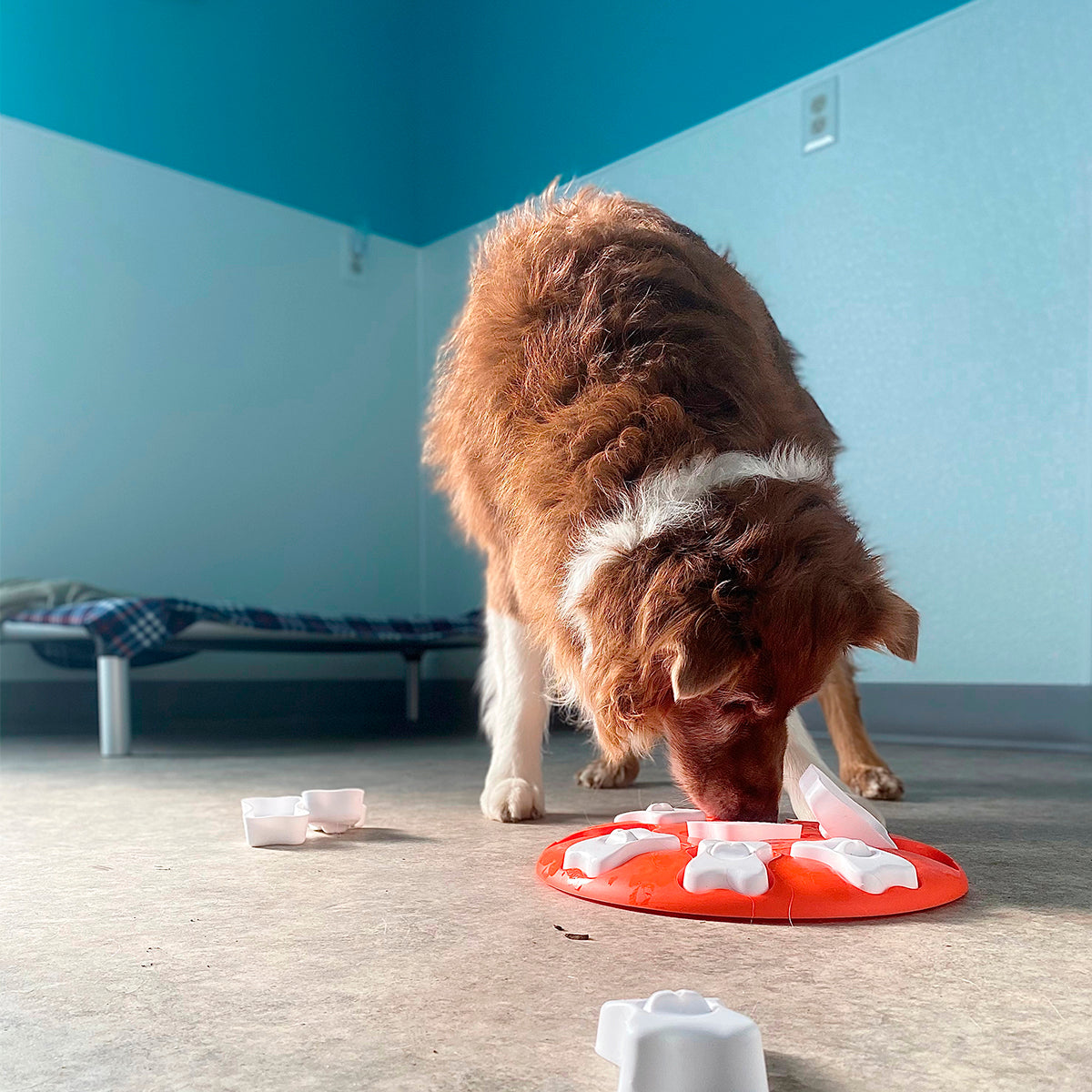
Aging dogs benefit from enrichment and mental exercise. You can make good use of feeding time with enriching toys and games.
For the senior dog's food bowl
-
Oscar Chicken Treat
OscarOriginal price 3,40 € - Original price 30,60 €Original price3,40 € - 30,60 €3,40 € - 30,60 €Current price 3,40 €New package! Meaty Chicken treat for dogs and cats. NO GRAIN. Complementary feed.
-
Oscar Turkey Treat
OscarOriginal price 3,40 € - Original price 28,90 €Original price3,40 € - 28,90 €3,40 € - 28,90 €Current price 3,40 €New package! Turkey treat for dogs and cats. Supplementary feed.
-
Oscar Liver Treat
OscarOriginal price 3,40 € - Original price 28,90 €Original price3,40 € - 28,90 €3,40 € - 28,90 €Current price 3,40 €NEW PACKAGE! Crispy oven dried treat for dogs and cats made of Finnish beef and beef liver. NO GRAIN. Complementary feed.
-
Oscar Salmon treat
OscarOriginal price 3,40 € - Original price 28,90 €Original price3,40 € - 28,90 €3,40 € - 28,90 €Current price 3,40 €NEW PACKAGE! Soft oven dried treat for dogs and cats made of fresh salmon. NO GRAIN. Complementary feed.
-
Oscar Pork Treat
OscarOriginal price 3,40 € - Original price 28,90 €Original price3,40 € - 28,90 €3,40 € - 28,90 €Current price 3,40 €NEW PACKAGE! Crispy oven dried treat for dogs and cats made of Finnish pork. NO GRAIN. Complementary feed.

